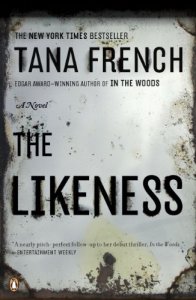The Fountainhead was one of a stack of books that my parents gave me as a high school graduation gift. Its fellows were 1984, Me Talk Pretty One Day, I Know Why the Caged Bird Sings, The Catcher in the Rye, and To Kill a Mockingbird among others. I’ve always been a passionate reader, but this gift was meant to help round out my library and my way of thinking about the world.
So I read The Fountainhead that summer and then Atlas Shrugged soon after. I enjoyed them, and not because I believe capitalism is the answer to all of society’s problems or because Ayn Rand is the best writer in the world (that 30 page manifesto voiced by John Galt, while impressive, is a challenge to power through for even the most determined of readers). No, on first reading I enjoyed them for some reasons that I will detail below, perhaps the first of which is I hadn’t yet learned that reading Ayn Rand was a political statement.
I went to a pretty liberal university. Liberal, politically. Of the two major universities in my city, mine has a certain reputation for being the home of hippies and hipsters, which made it a great place to protest things or buy hemp products but a difficult place to read Ayn Rand.
I was a 17-year old freshman, educated but sheltered. It took me a while to learn not to talk about Rand at all. Forget actually talking about the content of her argument, somehow even mentioning you’d read her books was off-limits. It was a strange experience. I hadn’t known Rand was associated with extreme-right Republicans, spouting selective snippets of her novels to explain why greed is good. I hadn’t known her books were second on the corporate asshole reading list and first on the liberal feminist list of books to vilify. (Let’s be clear here that I am a liberal feminist. But it’s in university that many of us first learn to look upon the baked-in injustices and institutional prejudices to which we were previously completely blind, and so on my first reading of these novels, I skated over the disastrous consent issues in the rape-fantasy scenes with a vague sense of discomfort, not yet able to fully conceptualize the implications and dangers of Rand’s message.)
Though people hear The Fountainhead or Atlas Shrugged and think of angry, white, privileged, middle-aged men who have a lot of money and zero compassion, I had the chance to read the books without those associations.
There were obvious flaws in her philosophy. I could see them with only a bit of effort. The most major, in my opinion, was: yeah it’s great if everyone just works as hard as they can and the most talented win out… but for that system to truly work, everyone would have to start on equal footing and receive equal access to opportunities (obviously a far, far cry from any human society I can think of and unthinkable in Rand’s “self first” ideology). However, I thought Rand made some good points – and I will intentionally say “Rand” instead of “Rand’s characters” since there seems to be no difference. Here’s a random sampling, from my memory:
- She thought everyone should work their hardest at whatever they do and everyone who is willing to work should have a job
- She thought the people who are the best should be rewarded regardless of their connections
- She thought people should make their own decisions and not rely on advertising or popular opinion, only on reason and fact
- She thought quality shouldn’t be sacrificed in the name of placating people’s feelings
- She was a little mixed on women… but she wrote certain female characters equal to their male counterparts in power, intelligence and business acumen, which is pretty good for the decades in which she was writing
- She thought women should be in control of their own bodies
- She thought religion was harmful and “holy men” were frauds; same with public relations people
- She thought people shouldn’t be afraid of something new (and that we shouldn’t fall back into a certain behavior simply because that’s how something has always been done)
- She thought architecture should suit its surroundings
- She thought people should be passionate about what they do and what they believe
- She was completely opposed to war, calling it the second-greatest evil humankind can perpetuate
In fact, I doubt she’d think very highly of any of the politicians who I’ve recently heard quote her novels and who use her name as a Republican secret handshake. Is money the only interest they actually share with Rand? If we put aside the typical American political-right positions on foreign policy, religion, public relations, and women’s health, money seems to be the only thing that remains. And who knows if Rand’s love of capitalism would have held out in today’s world? Her mid twentieth-century vision of capitalism had a purity to it. The formula was basically: hard work = more money. To my knowledge, it didn’t conceive of hedge funds or securities trading or David Li’s Gaussian copula formula.
By all accounts Ayn Rand was a smart, opinionated woman who wasn’t afraid to tell powerful people that they were destroying the world. I doubt she would look at the current presidential candidates (regardless of party) and give any of them a thumbs up because they sort of adhere to some portion of her philosophy. She’d probably be their most vocal critic.
I am definitely left-of-centre, politically. I should add, Canadian left-of-centre, to clarify to my American readers why I don’t use the term “Democrat.”
Anyway, I’m thankful for the “socialist” benefits that allow me to live a healthy, educated life. I believe pulling oneself up by one’s bootstraps is ridiculous, and that those who have lots should give a shit about those who have nothing. I think there should be a basic human imperative to help others, and if I have to sacrifice a chunk of what I earn to ensure that all of my neighbors can have access to food, housing, education, healthcare, employment, and a decent standard of living, I will do that without complaint. It seems obvious to me that a community, city, or country where the least fortunate residents are given access to these fundamental needs will be a place that breeds happiness, collaboration, and kindness. And maybe even wealth.
(This is not to say that Canada does a great job at this, especially when it comes to supporting and creating opportunities for our aboriginal population, but we are better than some.)
I say all this not to try to encourage you politically one way or another – to each his/her own – but to prove something about people who read Rand as opposed to people who use her books as self-promoting dogma.
There’s no way Rand and I would be on the same page politically, but that doesn’t mean her ideas are worthless, or that my time reading her books was wasted. Reading The Fountainhead and Atlas Shrugged (more than once, I should mention), helped me think critically about my government, about capitalism, and about how we define value, for the first time. I don’t have to agree with the message to enjoy the books, and in fact my belief in my own positions was formulated and strengthened through understanding Rand’s contrary arguments.
It comes down to this: I had the singular experience of reading a highly politicized author while being blissfully unaware of her significance. In the years after exploring her ideas, the reading of them hasn’t spoiled my compassion or increased my greed. Rather, the reading of her ideas has brought as much, if not more, value to my way of reasoning and thinking critically as any other books I have read.




 Now, for all of you regular humans, Robert Galbraith is a pen name of the goddess J.K. Rowling, author of the much-lauded and world-shifting Harry Potter series. I, by consequence of being a bookworm, a fantasy nerd, a person with splendid taste, and someone who was born in 1988 and thus grew up with the characters as the series progressed, am a deeply committed Harry Potter fan. But I had never read any of J.K.’s adult fiction. There was no reason to believe that I wouldn’t like it, and there were many reasons to believe I would be highly diverted by her storytelling prowess, so I downloaded The Cuckoo’s Calling and introduced myself to Strike and Robin.
Now, for all of you regular humans, Robert Galbraith is a pen name of the goddess J.K. Rowling, author of the much-lauded and world-shifting Harry Potter series. I, by consequence of being a bookworm, a fantasy nerd, a person with splendid taste, and someone who was born in 1988 and thus grew up with the characters as the series progressed, am a deeply committed Harry Potter fan. But I had never read any of J.K.’s adult fiction. There was no reason to believe that I wouldn’t like it, and there were many reasons to believe I would be highly diverted by her storytelling prowess, so I downloaded The Cuckoo’s Calling and introduced myself to Strike and Robin. Listening to an audio book while running took some experimentation. I began by downloading books I thought would be inspiring (Born to Run: A Hidden Tribe, Superathletes, and the Greatest Race the World Has Never Seen by Christopher McDougall), energizing (Endurance: Shackleton’s Incredible Voyage by Alfred Lansing), diverting (Why Not Me? by Mindy Kaling), and comforting (Pride and Prejudice by Jane Austen). Some of these were favourites and some of these were new, but with every attempt I came closer to finding the type of book I knew would be effective in keeping me going over the building mileage in my marathon training.
Listening to an audio book while running took some experimentation. I began by downloading books I thought would be inspiring (Born to Run: A Hidden Tribe, Superathletes, and the Greatest Race the World Has Never Seen by Christopher McDougall), energizing (Endurance: Shackleton’s Incredible Voyage by Alfred Lansing), diverting (Why Not Me? by Mindy Kaling), and comforting (Pride and Prejudice by Jane Austen). Some of these were favourites and some of these were new, but with every attempt I came closer to finding the type of book I knew would be effective in keeping me going over the building mileage in my marathon training.